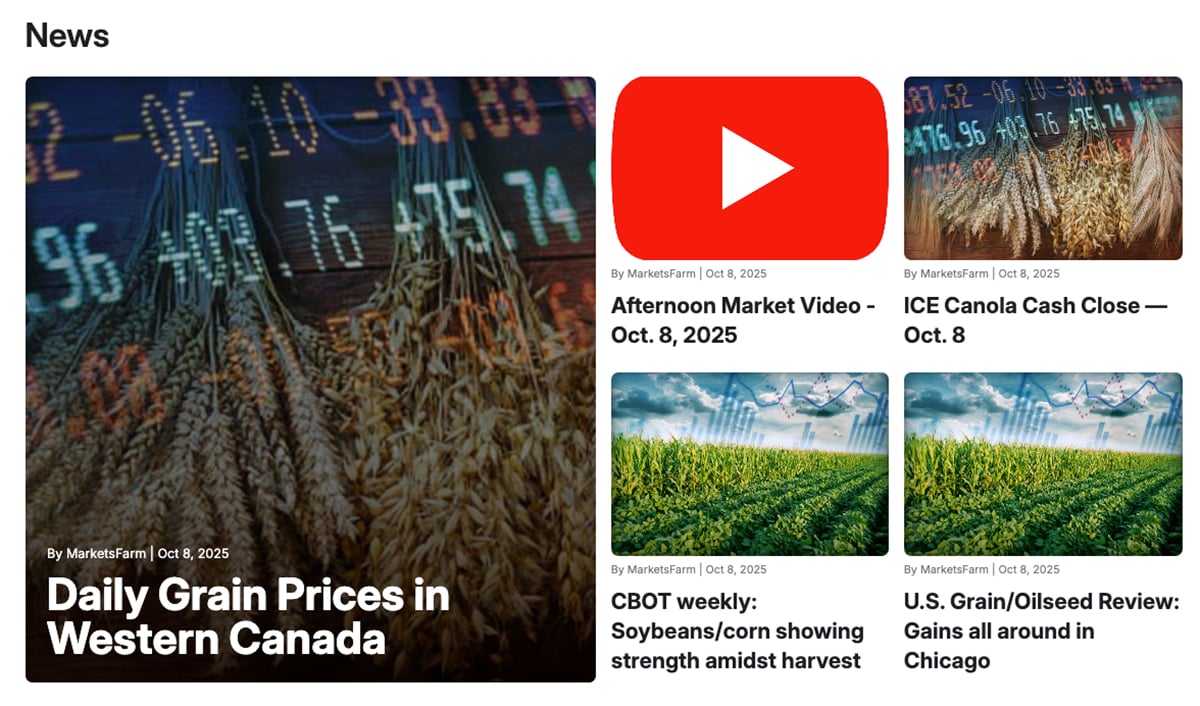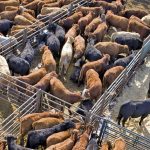Standing on the back of a truck in a western Manitoba farmer’s field, Canadian Wheat Board director Bill Nicholson said the board is trying to give farmers what they need.
“The CWB (Pre-Delivery Top-Up program) was a farmer initiative from the get-go,” said Nicholson about the new program, in which the board will supplement federal government cash advances so farmers can get up to 80 percent of their expected initial payment before any grain is delivered.
The program will cover only minor classes of wheat this coming crop year, but if it works well and is popular, it may be expanded next year.
Read Also

VIDEO: Catch up with the Western Producer Markets Desk
The Western Producer Markets Desk provides daily updates on agricultural markets, with recent video commentary including looks into canola, wheat, cattle and feed grains.
For the first year of the program, which begins this September, only Canada Western red winter, Extra Strong, Canada Prairie spring red, CPS white, CW hard white and CW soft white spring wheat classes will be covered.
The Manitoba farmers in the crowd seemed to think the new program was useful and needed.
“I think it’s long overdue,” said Larry Redpath of Mather.
Redpath’s friend Roland Vane, who farms near Stockton, agreed. The new program will lend money to farmers and charge interest on the top-up portion.
For farmers, it is important to get fast money after harvest.
“Things are getting so expensive now that you’ve got to borrow to farm,” said Vane, who said the new program would allow farmers to pay down farm supply debts quickly.
A few feet away, a group of four men who don’t agree with the wheat board’s export monopoly said this program will at least offer them more cash flow management.
“It’s a step in the right direction,” all four said in unison when asked what they thought.
Waskada farmer Murray Temple said he liked the intention of the program, but wished it wasn’t locked to the $250,000 maximum for federal cash advances, which leaves big farmers like him more exposed than smaller farmers.
“This program is a good program, but there should be no cap,” said Temple.
Nicholson said the program is designed to get more money into farmers’ pockets faster.
The federal cash advance allows farmers to receive only up to 50 percent of the value of the initial payment, and the cash advance is deducted from the initial payment when the farmer delivers his grain.
The top-up money will not be deducted from the initial payment, but from the later adjustment, interim and final payments. Unlike the federal cash advance portion, the top-up money is not interest-free. Farmers will be charged interest at prime.
The rates will be announced before Sept. 1, when the program begins.
Murray Downing, whose farm was the site of the announcement and who lobbied for the program, said getting fast cash on board grains will allow farmers to market non-board grains when it makes most sense.
“Maybe we wouldn’t have to sell (canola) in November at depressed prices,” said Downing.















